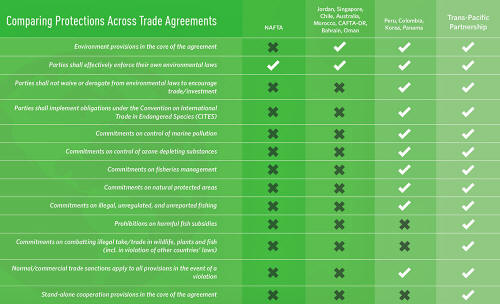|

by Patrick Wood
October 05, 2015
from
Technocracy Website

Negotiations have been completed on
the
controversial Trans-Pacific Partnership Agreement
(TPP), establishing comprehensive regulations across 12 Pacific Rim
nations, an area representing 40 percent of the global economy.
Since President
Obama achieved
Fast Track Authority from Congress
earlier this year, the next step toward enactment is submission of
the TPP document for a straight up-or-down vote with no amendments
or other changes permitted.
In the meantime, the actual TPP text
will be made public for a period of 60 days.
Public and Congressional debate promises to be the most contentious
in modern times, far surpassing the choleric that preceded the
implementation of the North American Free Trade Agreement (NAFTA)
under President Bill Clinton in 1994.
However, one aspect of TPP that is already being ignored is its
tight synchronization with the United Nations' recent enactment of
its 2030 Agenda to implement Sustainable Development on a global
scale.
This will be further enhanced by the
upcoming completion of the Trans-Atlantic Trade and Investment
Partnership (TTIP)
that is still under negotiation. The current U.S. Trade
Representative (USTR) and lead TPP architect is
Michael Froman.
The USTR is a member of the President's
Cabinet and as such, is Obama's first and last authority on matters
of international trade.
On the USTR's official blog,
Tradewinds, Froman states,
"Trade agreements are a vital tool
for combating these global [environmental] threats.
Two decades ago, environmental
provisions under NAFTA were relegated to a side agreement, with
only a single enforceable obligation to 'effectively enforce
your own environmental laws.' In contrast, our most recent trade
agreements contain extensive, enforceable environmental
commitments.
These commitments are subject to the
same dispute settlement procedures as other commercial
obligations, including recourse to trade sanctions in the event
of a violation."
The business of enforceable
environmental commitments is further reiterated on the blog:
"Enforceable commitments to protect
the environment, coupled with targeted technical assistance and
capacity building, can result in important environmental
progress on the ground."
My point is this:
The United Nations conned the
world into thinking that
Agenda 21 and now
its 2030 Agenda are somehow
voluntary for implementation.
In fact, Agenda 21 critics have been
consistently lambasted with the rebuttal that nothing has ever
been forced down anyone's throat on a local, regional or
national level - it's just a voluntary program.
Hogwash...
Such critics just haven't been following
the bouncing ball. Whatever may be couched as voluntary by the U.N.
is fully enforceable by Trade Agreements.
While NAFTA and CAFTA (Central American Free Trade Agreement) were
relatively light on environmentalism, the TPP majors in it. In fact,
it is the most comprehensive statement on environmental regulations,
enforcement and penalties in the history of all U.S. agreements and
treaties.
We should not be surprised at this.
On May 6, 2009 President Obama stated at
the Proclamation of World Trade Week,
"The United States and our trading
partners stand to gain when trade is open, transparent,
rules-based, and fair, showing respect for labor and
environmental standards."
Indeed...
The debate will now rage over whether
the TPP is open, transparent and fair, but
let's not forget that it also intends to be become a major
enforcement tool for the United Nations implementation of its 2030
Agenda and Sustainable Development throughout the world.
And No, it is not voluntary.
Whoever would dare to focus on the
U.N.'s velvet hammer of volunteerism will soon get clobbered
by the iron anvil of global trade regulations and their harsh system
of enforcement.
Ignore that at your own risk...
|


